“Owning our story and loving ourselves through that process is the bravest thing that we will ever do.”
Earlier this year I started reading my Dad’s war time stories. These are written under a pseudonym, Fergus McGregor; I am three years in, it’s 1942. North Africa and Alamein come next. I photocopied his memoirs for him in 1982!
Sometimes it takes a long time to get ready for things!
My Dad could be authoritarian and strong on control. When I was a child, that’s how it was; I didn’t like it much and didn’t see a bigger picture. His own parents had died before I was born.
Last week, as part of our trip to Scotland, we went to see my Uncle Bill. As my last surviving family relative, (Bill was married to my Dad’s sister, Thelma), I was feeling an increasing sense of urgency to speak whilst I had the chance!
Up till recently I had thought that owning my story was the one I knew about. Now, I can see it’s about understanding and owning my history too. Brene Brown’s blog explains this well.
Hmm, owning your story though, can be easier said than done. Here are some steps that, so far, seem to be helping me:
1. Track Down Where Your Story Can Be Found
My parents didn’t talk much about their upbringings, so it has been hard to piece things together. I knew though, that Bill had been a keen researcher of family history, and was keen on the facts. It was great to see a compilation of our family tree, with copies of birth, marriage and death certificates. This gave a strong foundation.
Our surprise though, was the photos he was able to show us too!!
2. Get curious as a means to widen your perspective
Bill was very discrete, but it seemed acceptable to describe my paternal grandfather also as being authoritarian. It’s possible his family came from Northern Ireland, and had embodied a strong disciplinarian Protestant approach in their parenting style for a number of generations.
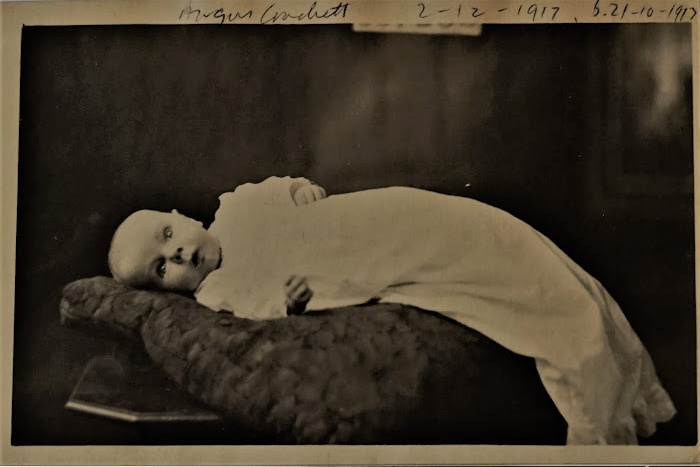 For the first time ever I saw a photo of my Dad aged six weeks!
For the first time ever I saw a photo of my Dad aged six weeks!
Seeing patterns over generations opened things up for me.
3. Allow thoughts and feelings to surface and breathe
I came away with so much new information about my father and my family; maybe I was finally ready to take it in. At first it was all a bit of jumble. I am now beginning to sense some patterns; highs and lows, disappointments, wounds and hurts, drive and energy.
The jigsaw is work in progress!
This is a photo of my Dad with his arm around my step-mother, then his father and his sister Lorna which I had never seen before either.
4. Make sense your own way
As well as allowing insights to surface, writing a journal and walking at the sea, I have found it valuable speaking with my husband too. Over the years we have been together, he met most of my aunts, uncles and cousins. His rather more independent insights add to my perspective.
This is the full painting of Islay by my Aunt Thelma, Bill’s wife. I had no idea she was such a talented artist.
5. Become a bigger person, expand how you see things, and in this way, own your bigger story
The more I learn about my family, the more I see my story in a wider context. The more empathy and kindness I now also feel for everyone in that era.
There has been a shift. I now understand in my body, not just in my head, that discipline, authority and control were a large part of narrative and experience at that times. This showed up in parenting, the church, the army, schools and the workplace too.
My reaction to control feels less about me and my Dad now, and more about our collective history and context.
How does this help? Me or you?
Maybe hierarchy, authority and control worked in the past, or maybe this approach was a coping strategy in the absence of more varied or subtle skills to lead, manage or parent in a different way.
To get the best out of people today though, it seems that leading an organisation, team or family with purpose, inclusion and collaboration can offer a kinder, more helpful and more effective way ahead.
What works for you?
Gill How loves to work with managers, executives and professionals to help them to evolve, stretch and grow their leadership capability. She is a Master Executive Coach and innovative Leadership Developer who works both internationally and in the UK.
Get in touch for a coffee, real or virtual, for an exploratory conversation.
The next programme of the virtual Women in Transport LEAD which Gill co-facilitates with Iain Smith starts in September 2021.
Although LEAD is virtual, I sneaked in lunch in North Shields with two of our participants Bev Clyde and Jenni Daglish on our way to Scotland! It was a delight to meet!
Photo credits: Martin How
With Appreciation: to my uncle, Bill Barr who so generously shared his knowledge and time with us.

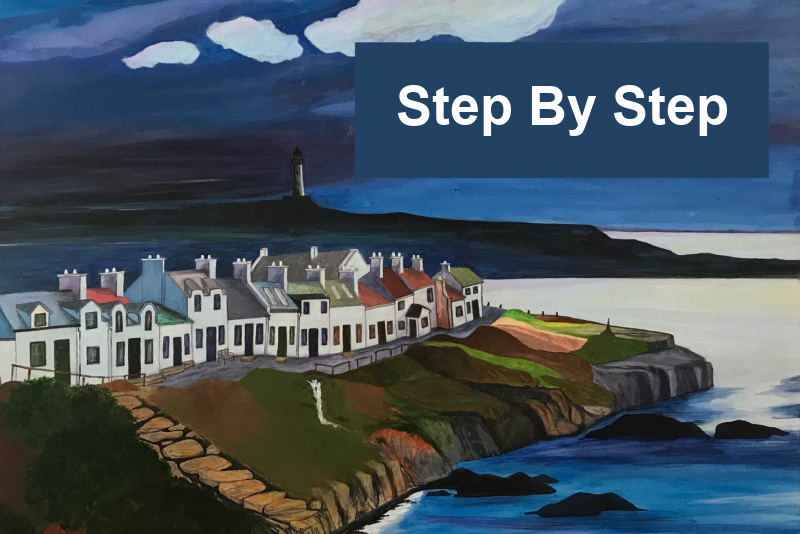
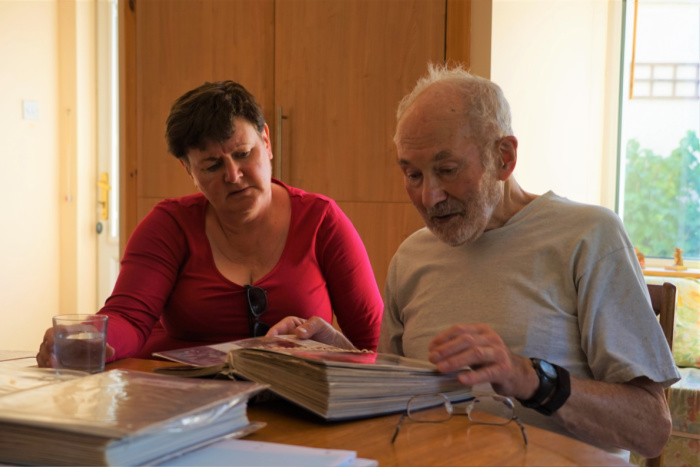
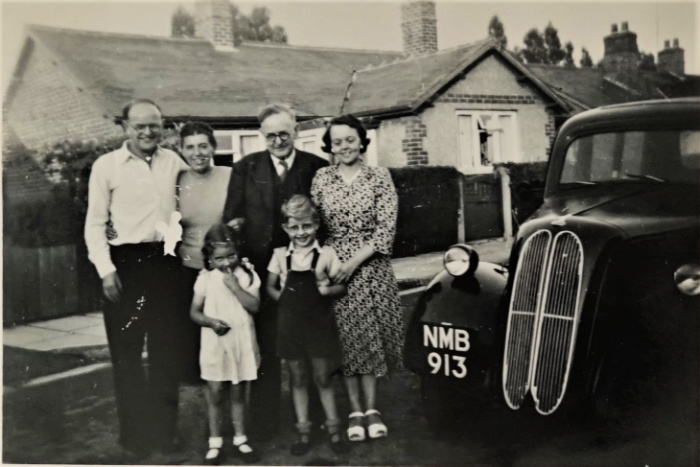
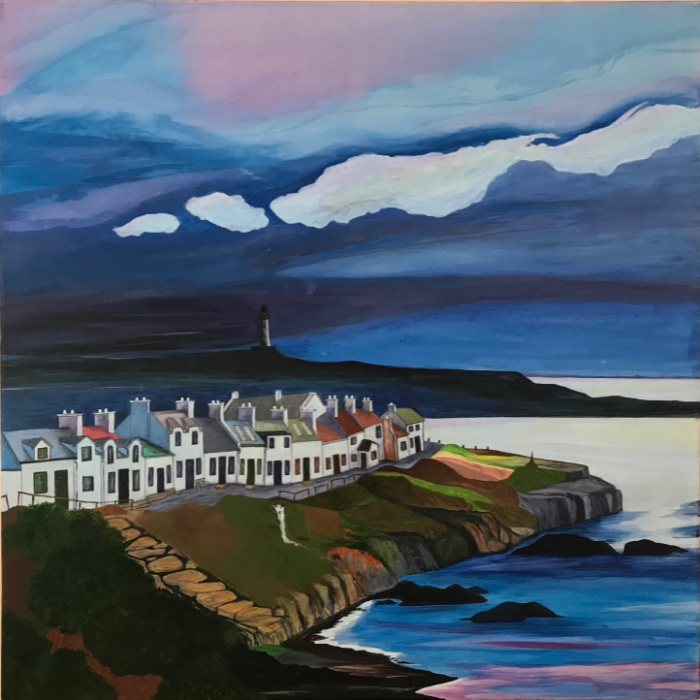
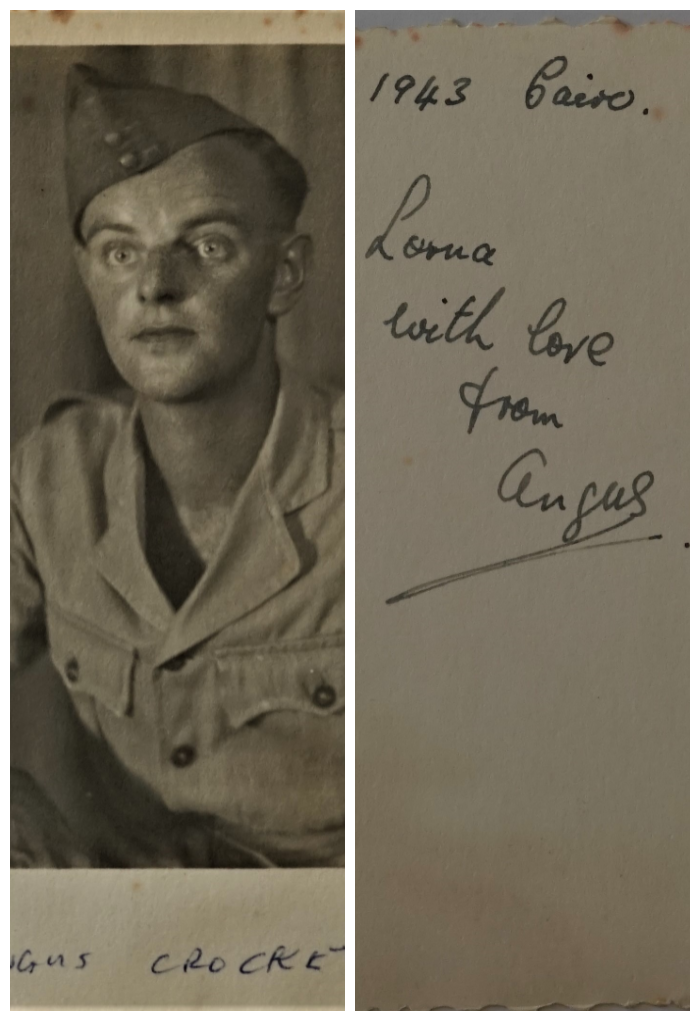
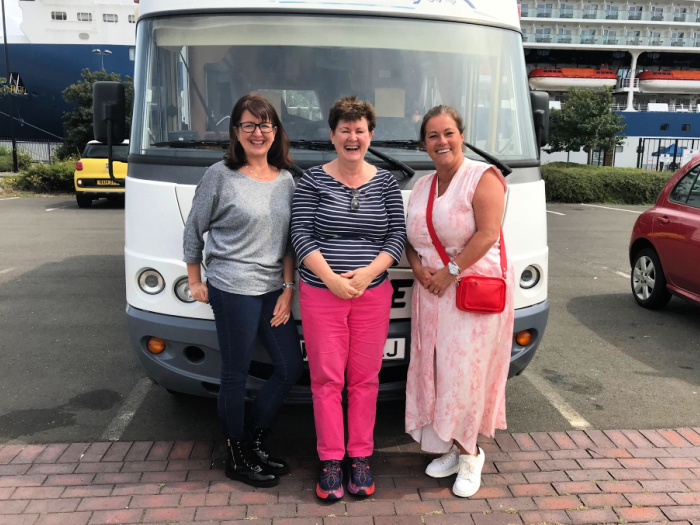
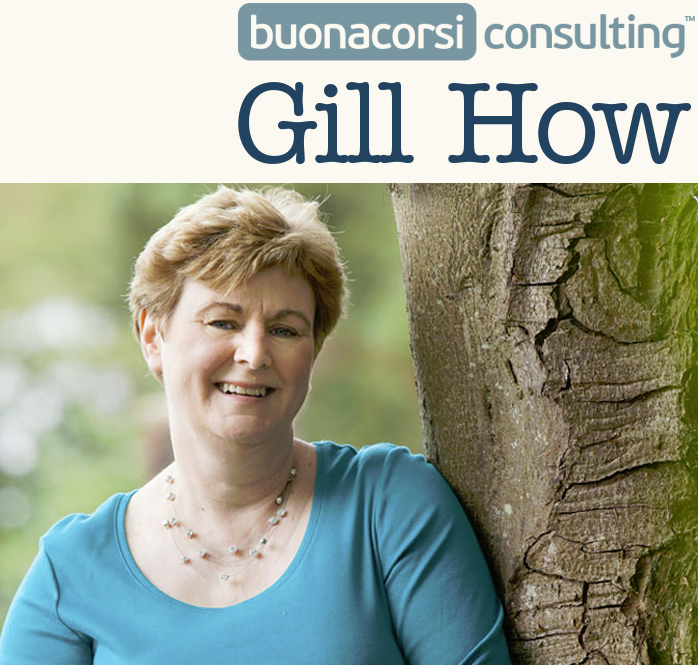



So much of this resonates with me, I have always believed in living my own story. I wish I had written journals asking the way, but then sometimes the memory is more authentic when it’s not written down. I have so much wished I had asked my grandfather when he was alive, but he didn’t want to speak of his experiences and I respected that, he did leave enough clues for me to come up with my own version of his events. I don’t need the exact details to know that you don’t survive what he did without being a survivor, an empathetic soul and a great organiser!! These as it turns out are my own key strengths as I have discovered on my LEAD journey!
I often wonder what else I have inherited with very little family history to go on but what I do know is that I have developed my own strong sense of personal development and enrichment learning what my strengths are and putting out the flames of my saboteurs, only I didn’t know that’s what I was doing until I did this course!!!
Now I know This is a “thing” I feel I can utilise it in a more tangible manner and look forward to the future!!!
Your comments are beautiful, Tracy! I love the idea of clues, inherited strengths and putting out the flames of saboteurs! I am so glad you are finding the Women in Transport LEAD course valuable, and it is a delight to have you as a participant! Onwards!